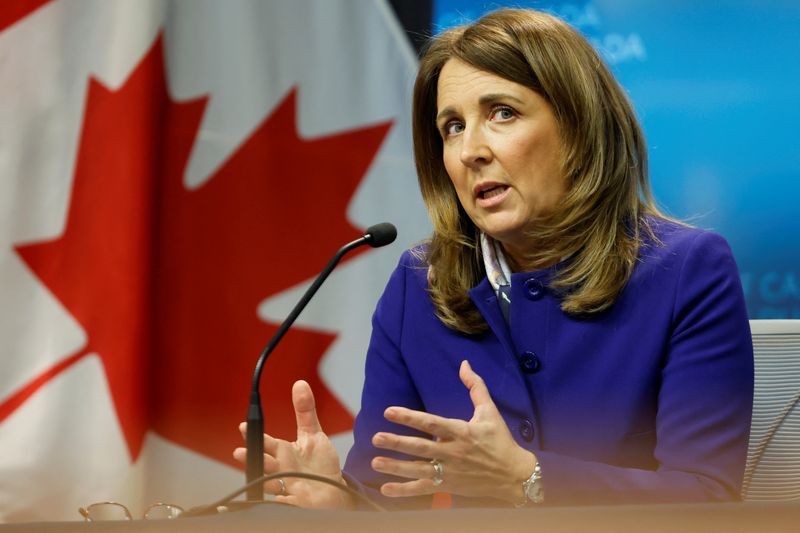By Steve Scherer and David Ljunggren
OTTAWA (Reuters) -The Bank of Canada on Thursday said the era of super-low interest rates was likely over and warned businesses and households to plan for higher borrowing costs than they have been used to in recent years.
During the years of the pandemic, the central bank’s policy rate was just 0.25% most of the time and never topped 1.75%. It is now at a 22-year high of 5.0%.
At a time of higher government debt and geopolitical risks including wars in Ukraine and Israel, long-term market rates have also moved higher.
“It’s not hard to see a world where interest rates are persistently higher than what people have grown used to,” Senior Deputy Governor Carolyn Rogers told Advocis Vancouver, an association of financial advisers on the West Coast.
Rogers said she wanted “to stress the importance of adjusting proactively to a future where interest rates may be higher than they’ve been over the past 15 years.”
The bank increased rates 10 times between March 2022 and July 2023 to tame inflation that peaked at more than 8% last year. It left rates on hold last month, but said it could hike again if needed.
The bank forecasts inflation will come down slowly and reach its 2% target only at the end of 2025.
“We do expect the central bank to be lowering interest rates in 2024, assuming that there’s more progress towards taming excess inflationary pressures,” said Royce Mendes, head of macro strategy at Desjardins Group.
“That will help limit the possibility of undue stress in the financial system,” he said.
Some households already are finding it harder to deal with existing debt, with delinquency rates on credit cards, car loans and unsecured lines of credit having returned to or slightly surpassed pre-pandemic levels, Rogers said.
While delinquency rates on mortgages are still lower than before the pandemic, the 60% of fixed-rate mortgage holders who must renew their mortgages by end-2026 “may face significantly higher payments,” she said.
Some members of the Bank of Canada’s policy-setting governing council saw the likely need for further interest-rate hikes when they left borrowing costs on hold on Oct. 25, minutes published on Wednesday showed.
However, economists expect the central bank to start easing interest rates as soon as April, and money markets see them coming down around mid-year.
“We are not yet talking about reducing rates,” Rogers said in response to a question from the audience. “We need to see inflation well on its way back to its target.”
(Reporting by Steve Scherer and David Ljunggren; Editing by Leslie Adler)
